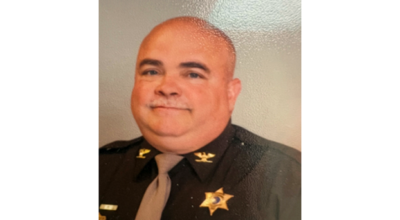Rotarian talks about providing assistance overseas
Published 10:01 am Friday, October 2, 2015

Leader photo/TED YOAKUM
Dowagiac Rotarian Wilber Breseman discusses the volunteer work he recently performed overseas with Alliance for Smiles.
an organization devoted toward helping children born with cleft lips, with the rest of the club Thursday afternoon.
While a problem mostly invisible to people living in the U.S., thousands of children are born every year across the world with a cleft lip or palate.
While plastic surgery is readily available to solve the birth defect in families living in first-world countries, kids in developing countries don’t have this luxury. As a result, they often spend their entire lives as social outcasts — or worse, according Dowagiac Rotarian Wilber Breseman.
“In Africa, it’s considered a curse to be born that way,” Breseman said. “A lot of kids are killed right off the bat.”
Thanks to the efforts of Breseman and other members of the nonprofit organization Alliance for Smiles, many of these children are able to get the help they need to have normal, productive lives.
The Marcellus resident shared his experiences working with the organization with the rest of Dowagiac Rotary during their meeting Thursday afternoon at the Elks Lodge. Breseman also updated the club about the work that the organization’s surgeons have performed to date, and about some upcoming missions they will be undertaking.
Alliance for Smiles was formed in October 2004 by six members of the San Francisco Rotary Club, with a mission of providing corrective surgery for children in third-world and developing nations born with the condition, which is marked by a physical separation of the two sides of the upper lip. Surgeons with the organization are dispatched overseas around eight times a year, to rural regions in countries such China, Bangladesh, Nigeria and Myanmar.
“We go to some of the most remote places in the world,” Breseman said. “If these kids didn’t have us, they’d go all their lives with this.”
While a common problem for children in any country, rich or poor, the birth defect is particularly an issue in Asia, where one out of 350 children are born with the condition, Breseman said.
On each mission, surgeons with the alliance assist between 80 to 100 children and adults suffering from the condition, he said. As of their list mission to China, the organization has cared for over 5,000 children.
Breseman has been on 22 missions himself, operating sterilizing equipment for doctors on the field. He was named the Volunteer of the Year with the west coast based organization for three years, an accomplishment is quite proud of, he said.
However, the real prize of the job comes from working with the patients themselves, to be able to witness them smile for the first time, he said. He recalled one particular patient he worked with, who before treatment suffered from one of the worst cases of cleft palate he’d ever witnessed.
“Now he’s one of the most handsome young adults you can imagine,” Breseman said. “Those are rewards for us.”





